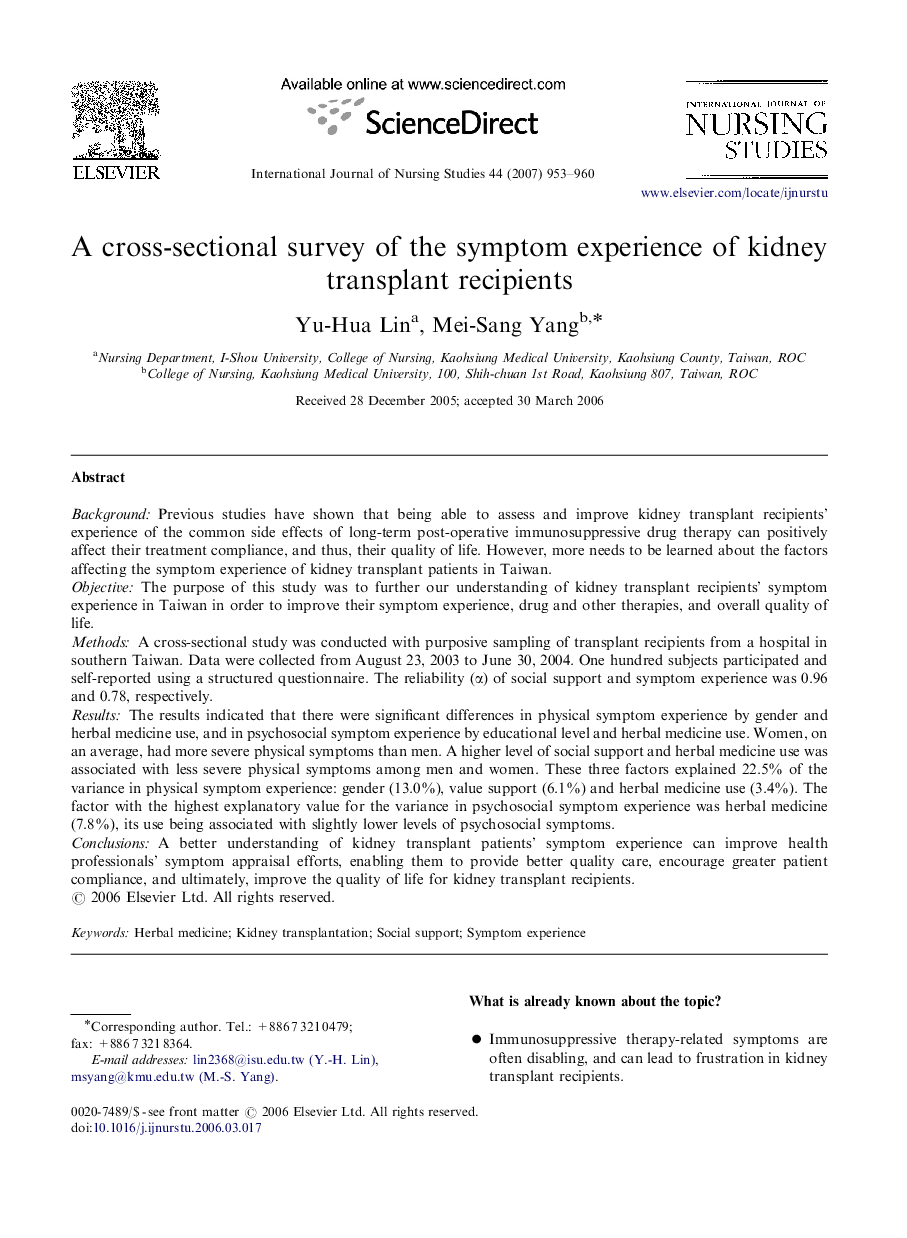| Article ID | Journal | Published Year | Pages | File Type |
|---|---|---|---|---|
| 1077397 | International Journal of Nursing Studies | 2007 | 8 Pages |
BackgroundPrevious studies have shown that being able to assess and improve kidney transplant recipients’ experience of the common side effects of long-term post-operative immunosuppressive drug therapy can positively affect their treatment compliance, and thus, their quality of life. However, more needs to be learned about the factors affecting the symptom experience of kidney transplant patients in Taiwan.ObjectiveThe purpose of this study was to further our understanding of kidney transplant recipients’ symptom experience in Taiwan in order to improve their symptom experience, drug and other therapies, and overall quality of life.MethodsA cross-sectional study was conducted with purposive sampling of transplant recipients from a hospital in southern Taiwan. Data were collected from August 23, 2003 to June 30, 2004. One hundred subjects participated and self-reported using a structured questionnaire. The reliability (α) of social support and symptom experience was 0.96 and 0.78, respectively.ResultsThe results indicated that there were significant differences in physical symptom experience by gender and herbal medicine use, and in psychosocial symptom experience by educational level and herbal medicine use. Women, on an average, had more severe physical symptoms than men. A higher level of social support and herbal medicine use was associated with less severe physical symptoms among men and women. These three factors explained 22.5% of the variance in physical symptom experience: gender (13.0%), value support (6.1%) and herbal medicine use (3.4%). The factor with the highest explanatory value for the variance in psychosocial symptom experience was herbal medicine (7.8%), its use being associated with slightly lower levels of psychosocial symptoms.ConclusionsA better understanding of kidney transplant patients’ symptom experience can improve health professionals’ symptom appraisal efforts, enabling them to provide better quality care, encourage greater patient compliance, and ultimately, improve the quality of life for kidney transplant recipients.
